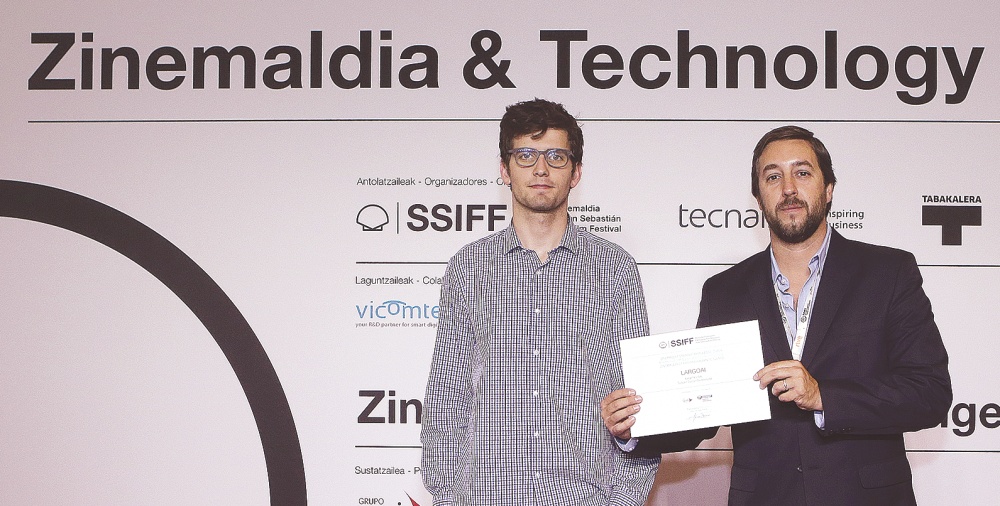Swiss artificial intelligence and data analytics company LargoAI won Sunday’s first-ever San Sebastian Film Festival Zinemaldia & Technology Startup Challenge.
LargoAI’s software provides data-driven filmmaking strategies, similar to those used by major VOD platforms which aggregate and often horde their own user-driven data. From early in the screenwriting process through development and production, the software can help predict audience responses. Evaluated on a country-by-country basis, it can also be used in distribution planning.
“We are creating a tool that takes decision making beyond a human response to individual experiences and bases it on the performance of hundreds of films across many markets,” said Largo’s Javier Krause after accepting the award.
Addressing concerns that using data to make development and production decisions could be viewed as anti-artistic, Krause explained that, “Cinema never stops being a business, and the key is to make a movie that is profitable so that creators can continue filming and producing new art.”
“If we can provide one more element that helps them find success, I don’t see that as getting in the way of art,” he said.
The company won €10,000 ($11,200) cash, a year’s free access to an incubation space within the Basque technology park network and potential investment funding of up to $560,000.
Other pitches came from Irish startup Volograms, which transforms video taken from various angles into volumetric holograms which can then be inserted into 3D production.
Spanish Shield by Brave is an AI age verification system which integrates into digital content distribution platforms and uses device cameras to limit age-restricted content.
AR software which allows for studio-level post-production inside a virtual setting, Flow Cut removes the need for equipment beyond a computer and VR headset.
And Scenso.tv is an already-running SVOD platform which uses blockchain to ensure that copyright holders of streamed content are compensated when their content is viewed.
Rapid-fire presentations followed the pitches from 2deo, the sual laboratory of San Sebastian’s Tabakalera; Gosho, a 3D and VFX company; Tecnalia, a local tech company with more than 1,800 employees; Vitoria-based communications company Alegria Activity; Vicomtech, a local graphics, visual computing and multimedia research center; and San Sebastian TV producers Pausoka.
Dibulitoon, the Basque production company behind the upcoming 3D animated feature Elcano & Magellan: The First Voyage Around the Worldprovided a VR presentation of their transmedia strategy for the film.
After a brief merienda, a Spanish not-yet lunch break, Deluxe Spain lead matte painter Lucía Peralta, a of productions like Game of Thrones and Aquaman, gave an in-depth Masterclass on her artform.
Finally, jury head Vanessa Ruiz Larrea, communication director at Deluxe Spain, announced LargoAI as the day’s big winner.
“We were three jurors; one from research and technology, one from the business side and me from audiovisual sector,” she explained to Variety. “While all five projects were fantastic, when considering each point of view, this project best addressed issues in all three areas.”
“Platforms already have all this info, and we saw this as a democratization of that data,” she added.
Jamie Lang





